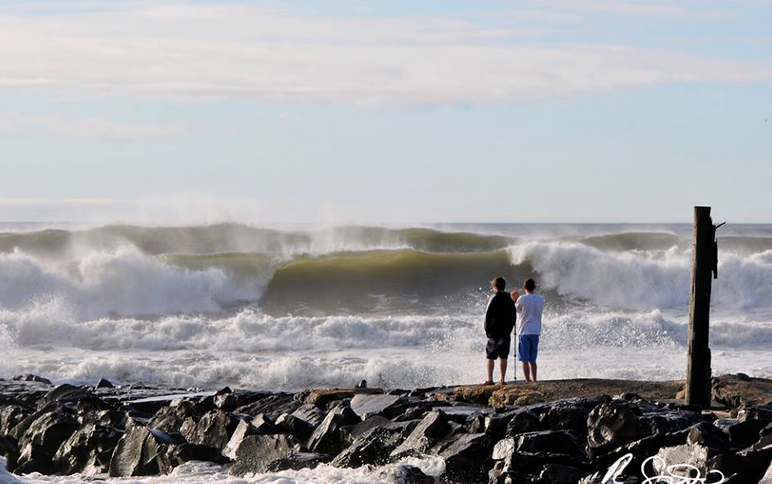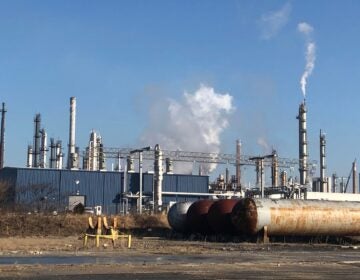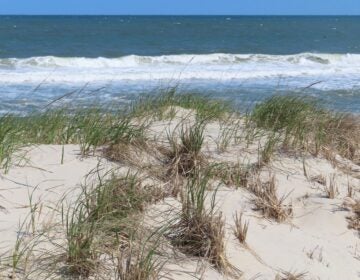University begins studying year-round bacteria pollution at N.J. surfing beaches
A research study is underway at surfing beaches in three New Jersey municipalities to better understand the linkage between rainfall and bacteria pollution.

Monmouth University scientists and students are sampling water at some New Jersey beaches before and after at least 10 storms over a year. (Courtesy of Robert Siliato)
A research study is underway at surfing beaches in three New Jersey municipalities to better understand the linkage between rainfall and bacteria pollution.
Monmouth University scientists and students are conducting the study at five beaches spread across Asbury Park, Deal, and Long Branch, where municipal storm drains and outflow pipes discharge directly into the ocean.
They’re sampling water at the beaches before and after at least 10 storms over a year.
“We’ve heard stories from surfers about how the water sometimes smells and looks different at these beaches after heavy rainstorms,” said Jason Adolf, a marine science professor at Monmouth University’s School of Science and Urban Coast Institute. “However, no data have been gathered to back up the anecdotal evidence about the magnitude of the problem.”
The study, funded through a $30,000 contract with the Surfers’ Environmental Alliance, is also important because the state only tests for bacteria levels during the summer tourism season, said professor Jeff Weisberg.
“Surfing is a year-round passion at the Jersey Shore, but the state doesn’t test its waters as frequently during some of the best wave months, including the fall hurricane season,” he said. “This project will help show what kind of health risks, if any, that surfers might be exposed to during the colder months.”
The state tests water quality at 35 bay and 180 ocean locations weekly and issues advisories or closures following unacceptable levels of enterococcus, a bacteria found in the intestines of warm-blooded animals that can cause urinary tract infections, bacteremia, bacterial endocarditis, diverticulitis, and meningitis.
Some waterways are typically susceptible to higher bacteria levels after rainfall and associated storm runoff.
WHYY is your source for fact-based, in-depth journalism and information. As a nonprofit organization, we rely on financial support from readers like you. Please give today.




